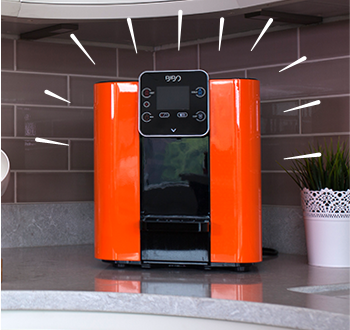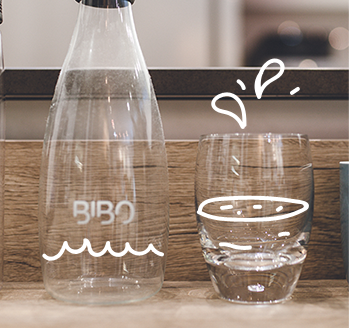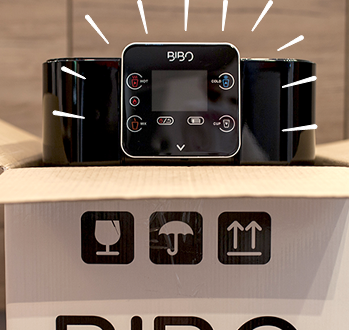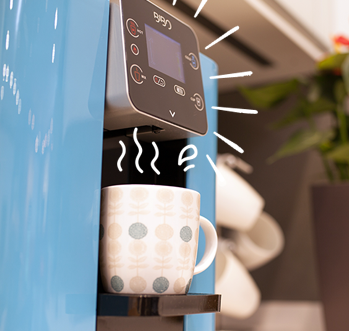The world is currently feeling particularly fragile in the context of water sustainability. With many countries across the globe coming to grips with water scarcity and increasing levels of pollution everywhere, water management has grown from being a day-to-day necessity to an urgent priority worldwide.
BIBO Water can offer a sustainable water solution that not only enhances the quality of your standard tap water but also contributes to a greener world, helping you to make healthier choices for the planet.
This article will provide a comprehensive rundown of what is going on in the world of water sustainability and will show you how BIBO contributes to these evolving needs in responsible water management.
Exploring Sustainable Water Solutions and Innovations
There is an urgency for solutions which can help maintain safe and reliable water sources. As such, new innovations in water solutions and technology are being developed, with many focusing on water purification, conservation and equitable distribution.
However, developing new technologies can only take us so far. An overall mindset shift needs to occur in sustainable water practices as well as in promoting environmental responsibility.
Here at BIBO, we are driven to bring beautiful-tasting water into your homes and offices without affecting the environment. Indeed our water filtration system encourages the reduction of energy waste as well as the reduction of water and plastic usage.
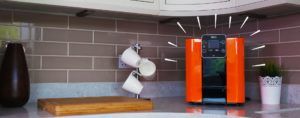
Sustainable Water Solutions for Home and Beyond
One particular sustainable water practice that BIBO promotes is the use of eco-friendly water filters. This would be a big step towards creating change in the industry if all companies made steps towards reducing plastic through recyclable filters or the use of filters with eco-friendly materials.
Water filters in general already help reduce the need for plastic bottled water. BIBO’s filter cartridges and UV lamps go one step further, being fully recyclable with no fuss, just pop them straight into your home recycling bins.
Using a Bibo water filtration system also reduces your water consumption. Attached to the mains water supply you can simply press a button and chilled water will fill up a nice refreshing glass, or with another button you have hot water ready for your tea or coffee. This will minimise water waste and keep energy consumption down.
Sustainable practices should also expand beyond the home with community-driven initiatives and workplace water responsibility. BIBO’s countertop filtration systems can be purchased for the workplace as well, contributing to more sustainable and eco-friendly practices on a larger scale.
Eco-Friendly Advancements in Water Innovation
The use of water is very much linked with humanity’s development, evolving alongside us. It has grown from being a simple source for quenching our thirst to becoming an all-important resource in food production and transport. As our knowledge has grown, so too has our demand for water resources become more complex and varied.
The Evolution of Water Innovation
New technologies such as advanced water filtration, purification, and water-saving technologies have pushed new methodologies to the forefront of how we treat and think about water.
BIBO is at the vanguard of this technological development, combining its silver-infused carbon block filtration and UV Lamp purification with sustainable practices, fully committed to environmental responsibilities.
Embracing Eco-Friendly Water Filters
Choosing which water filter suits you best can be difficult, but once you have made your decision, your choice can be an empowering one. But whichever one you choose, you know that you are contributing to a better planet.

It is important to take into consideration all factors, such as energy efficiency, where the materials for the filter come from, and how well the filtration works. All these factors can impact the quality and taste of your filtered water as well as the reduction of plastic waste and the use of harmful materials. This is what makes BIBO a great option as the multi-level filtration system with fully recyclable cartridges and UV lamps places it at the top of the industry in environmental impact.
Exploring Environmentally Conscious Water Practices
Whether you are a tea or a coffee person, waking up in the morning with a hot drink can set you up for the rest of the day. Boiling water, whilst a common practice, does use large amounts of energy to bring your cold water to just under 100°C. But should you be doing this?
The Greenest Way to Boil Water
There are greener alternatives to simply boiling a traditional kettle, or even using the hob to heat your water. You can find energy-efficient kettles or you can use a countertop hot water system. But, embracing eco-friendly ways to heat water is of paramount importance, leading to a healthier planet, and a healthier bank balance.
BIBO has the dual ability to give each household both chilled water and hot water heated to around 98°C, perfect for a nice cup of tea. Throughout a day of use, the BIBO Classic uses 25% less energy than a typical day’s use of a kettle.
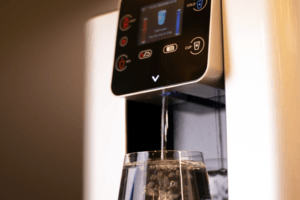
You can contribute to greener practices by using a BIBO water filtration system. It filters out chlorine, microplastics, herbicides, insecticides and micro-organisms. Furthermore, if you have the BIBO Classic, a powerful UV filter kills off any remaining bacteria, leaving your water clean and pure.
All these benefits are combined in an easy-to-use digital interface. Plus, the BIBO Classic comes in a sleek design with 12 different colours to choose from.
Future Trends and the Road Ahead
In general, everyone has a significant role to play in managing their own water consumption, but it is big corporations that need to embrace change the most.
BIBO stands by its commitment to promoting and practising sustainable water usage. And you can too. By encouraging the implementation of recyclable filters as well as decreasing the level of energy consumption, your home or your workplace could become a beacon for change.
To learn more about BIBO and how you can affect change, check out this page.


